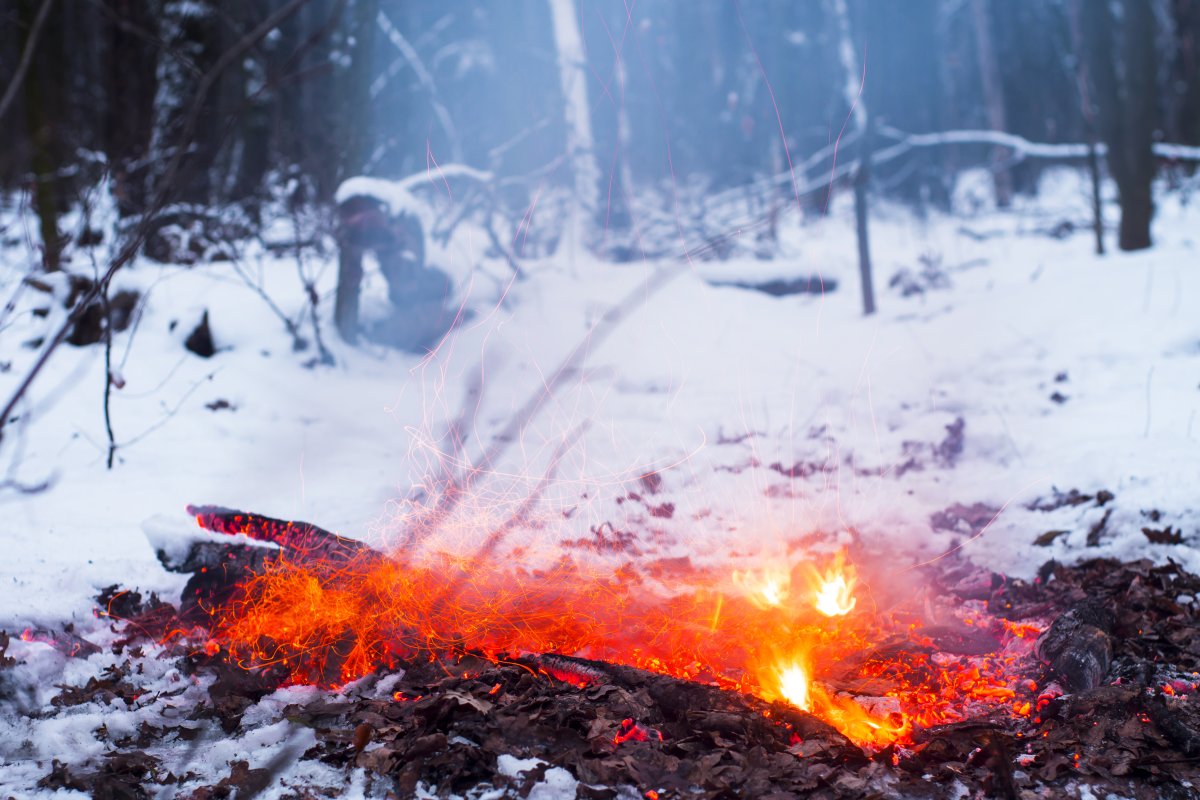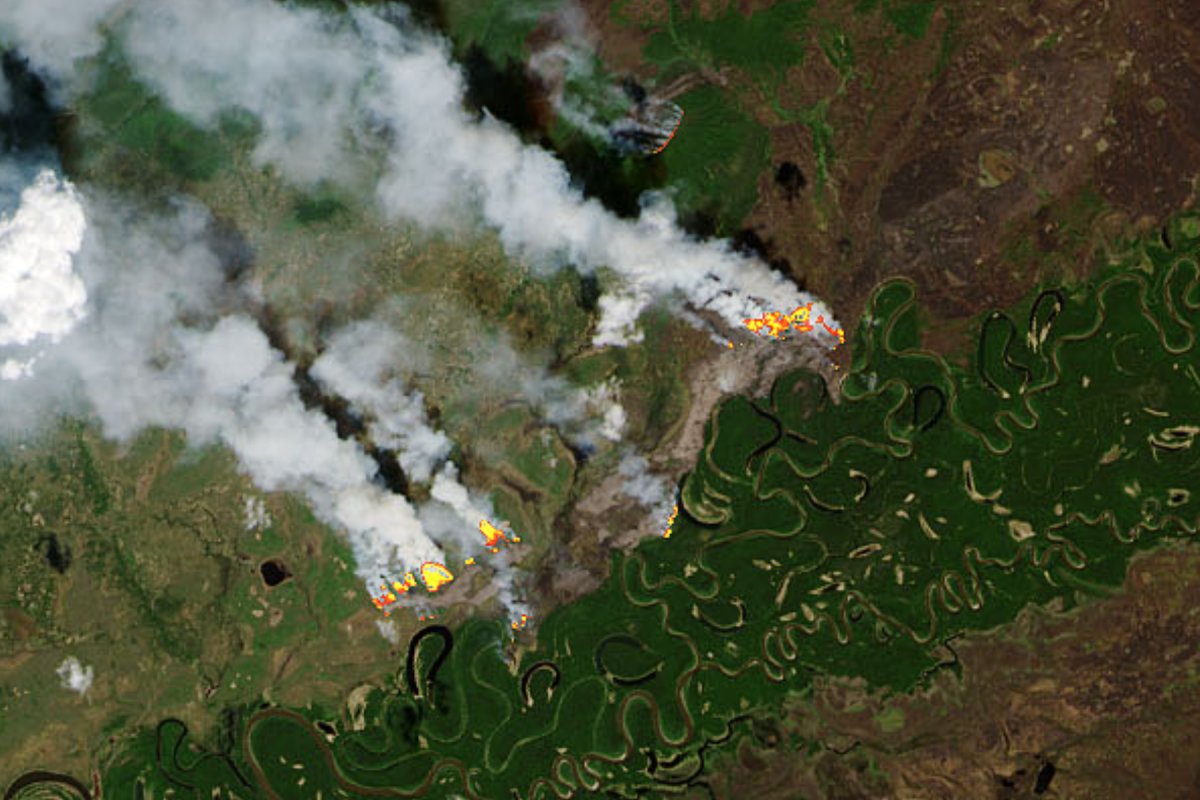Over a hundred "zombie" fires leftover from the summer season are still simmering under the ground in Canada.
These "zombie" fires, also known as overwintering fires or holdover fires, continue burning under the surface long into the winter months, and risk sparking back into full-blown wildfires as spring approaches.
There are currently 92 fires actively burning in British Columbia, and 54 in Alberta, according to the Canadian Interagency Forest Fire Centre, with several more burning in the Northwest Territories.
Wildfire activity in Canada typically peaks during the summer months, particularly in the western provinces and territories where dry conditions and lightning strikes are common.

The most wildfire-prone areas in Canada include British Columbia, Alberta, Saskatchewan, Manitoba, Ontario, Yukon, and the Northwest Territories. These regions have vast forested areas that are susceptible to ignition under the right conditions. In 2023, BC saw a record-breaking 2,220 fires, which burned an area of 2,830,808 hectares (6,995,078.9 acres).
Sometimes, larger fires can continue to burn into the winter, burning soil and roots under the ground.
"Snow can actually insulate a fire. Fires burn under that protective layer staying mostly dry and burning slowly through embers, in places with thick snow there is a zone called the "subnivean zone" which is an insulator not just for wildfires but also wildlife.
"Think about hot coals in a fireplace or campfire that stay hot all night long. Those slow burning materials can keep a fire going for a long time," Camille Stevens-Rumann, an associate professor of forest and rangeland stewardship at Colorado State University, told Newsweek.
These fires are sometimes only visible due to the smoke coming from them.
"These fires can produce a lot of carbon dioxide. We also don't know where they have burned out or where they may flame up as soon as the rest of the fuel is dry enough. Meaning we can have wildfires as soon as the snow melts without good predictions of where they might be continuing to burn," Stevens-Rumann said.
Alberta called an early start to the wildfire season on Tuesday, 10 days earlier than usual, due to worries about the upcoming warmer weather.
Climate change has been linked to an increase in the frequency and severity of wildfires in Canada and the U.S., as rising temperatures and changing rainfall patterns contribute to drier conditions, allowing for ease of fire ignition and spread.
This year, many more zombie fires have been blazing across the country than usual.
"It's not something I've seen in any of the data sets," Jennifer Baltzer, a professor in the department of biology at Wilfrid Laurier University in Ontario, told local news CBC. "What we don't know is how many of these will actually translate to reignition in the spring.
"This is yet another indication of the impact of climate warming on these systems," she said.
These fires may contribute towards higher levels of wildfire at the very beginning of spring and summer, experts fear.

"It still feels like we haven't had enough time to get recovered, let alone get ready, because here we go again," Sonja Leverkus, a wildfire professor at the University of Alberta and a wildland firefighter crew leader from Fort Nelson, B.C., told local news CBC.
"A lot of people talk about fire season and the end of the fire season, but our fires did not stop burning in 2023," said Leverkus. "Our fires dug underground and have been burning pretty much all winter."
As we creep towards spring, wildfire management authorities across Canada and in the U.S. will keep an eye on any overwintering zombie fires, and come up with a plan to tackle the blazes brought by the warmer months.
Do you have a science story to share with Newsweek? Do you have a question about wildfires? Let us know via science@newsweek.com
Update, 2/26/24, 4:15 p.m. ET: This article was updated with comment from Camille Stevens-Rumann.
Uncommon Knowledge
Newsweek is committed to challenging conventional wisdom and finding connections in the search for common ground.
Newsweek is committed to challenging conventional wisdom and finding connections in the search for common ground.
About the writer
Jess Thomson is a Newsweek Science Reporter based in London UK. Her focus is reporting on science, technology and healthcare. ... Read more
To read how Newsweek uses AI as a newsroom tool, Click here.






